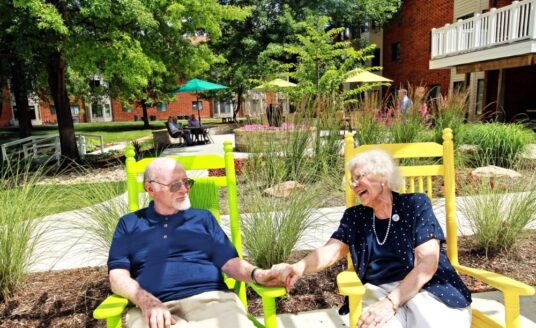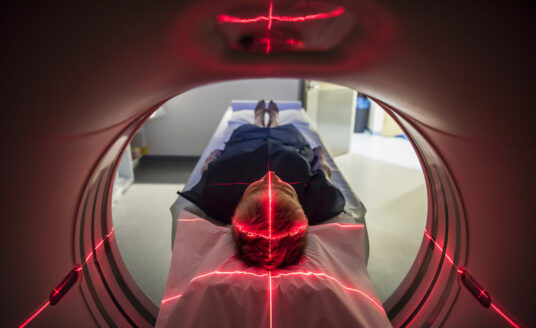As a family caregiver, you may feel you need to be multitasking two or more things at once to address the needs of your loved one. In that frantic process, however, you may be losing time and energy and may be accomplishing less than if you had focused on one task at a time, not to mention the mental and physical harm.
Taking on complex simultaneous tasks becomes quite challenging, and often ends up with the caregiver starting to make mistakes. It’s the way the human brain is wired, and there are consequences associated with trying to overload it.
The Price You Could Be Paying for Multitasking
- Research shows multitasking negatively affects short-term or working memory. Working memory is the ability to hold and use information in the brain.
- Multitasking can lead to increased distractibility. It has been shown that people who frequently multitask tend to be easily distracted because of a reduced ability to distinguish between what is important and what is not.
- Multitasking can lower your IQ. One study showed that a person’s IQ could decrease as much as 15 points while multitasking. And some research suggests that some of it could be physically damaging to the brain.
- Constant multitasking increases sadness and fear. One study ascribed it to “a consequence of the heavy mental load of constantly switching tasks.” It can also damage your relationships with family and friends.
- Multitasking results in more mistakes and a drop in productivity. Studies conducted in a business environment revealed that switching from task to task caused a 20 percent reduction in productivity.
This should be particularly concerning for caregivers who may be trying to dispense medications to their senior loved one while preparing a meal and answering the phone. When you switch activities, you force your brain to shift goals and realign your thoughts to complete the new activity. But when you switch from one task to the other, it takes time to mentally catch up while some ideas and thoughts from the previous task linger in your brain.
Healthy Alternatives to Multitasking
Focusing on a single task gives you the freedom to clearly see and do what needs to be done. In fact it allows you to be more creative and discover solutions that you might have missed while multitasking.
Some ways to slow down and gain control include:
1. Creating a daily schedule. Of course, being a caregiver for a senior means the unexpected will happen, but having a plan gives you a framework to refer to and keep you from becoming distracted from your priorities. If possible, schedule the tasks you find most challenging for the times of day when your physical and mental energy are highest.
2. Remaining present. If you are thinking too far ahead or too far in the past, you could miss what you should be doing in the present. Also, you will miss some of those special moments with your senior if your mind is always somewhere else.
3. Decluttering. If the home is filled with too many items—paperwork, medications, books and magazines, dishes on countertops, bills on desktops, remaining focused becomes more difficult, and the clutter may tempt you to try to do everything at once to clean it up.
Sound can also cause clutter—a blaring radio or TV, traffic rushing past an open window, dogs barking, and leaf blowers screaming. Turn off, turn down, and close the window. Create some quiet time.
4. Take breaks. Everyone needs some time to disconnect and recharge. Step back, sit down or take a walk. Listen to some music. Have a conversation with your loved one. Be responsible for caring for yourself as well as your senior.
5. Learn your limits. It is a common temptation among family caregivers to keep adding tasks and responsibilities as needs for your senior loved one increase. Ask for help from other family members or professional in-home health services before you reach your breaking point. After all, everyone has her or his limit.
Taking care of a parent is often difficult. Find tips and information on caregiving on our blog!
| Bethesda has a 133-year tradition of providing excellent senior living options, including independent living, assisted living, memory care, and skilled nursing. If you are considering independent living, we welcome you to tour one of our exceptional communities, including Bethesda Barclay House – Clayton, Bethesda Gardens – Kirkwood, Bethesda Orchard – Webster Groves, Bethesda Terrace – South County, Village North Retirement Community – Florissant, and The Oaks at Bethesda Villas – Kirkwood/Webster. Discover the level of care only a non-profit staffed by highly-trained nurses, therapists, and aids can offer. |
Want to find out more?
If you’d like to stay up to date with Bethesda Health Group, sign up here to receive our blog and newsletters!
"*" indicates required fields
Related Articles
Want to find out more?
If you’d like to stay up to date with Bethesda Health Group, sign up here to receive our blog and newsletters!
"*" indicates required fields



